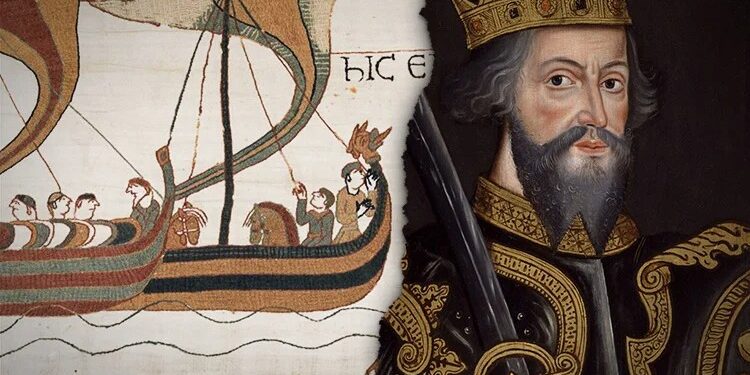The Battle of Hastings, fought on October 14, 1066, is a pivotal moment in English history. This battle between William the Conqueror, Duke of Normandy, and Harold II, King of England, marked the beginning of a new era for the British Isles.
The origins of the conflict lay in the disputed English throne. When Edward the Confessor died in January 1066, several claimants emerged, including Harold, who was crowned king, and William, who believed he was the rightful heir. William’s determination to claim the English crown led to the invasion of England, setting the stage for the Battle of Hastings.
The battle took place near the town of Hastings in East Sussex, England. William’s Norman forces faced Harold’s English army, which had just completed a grueling march from the north to defend his kingdom. The English army formed a shield wall on Senlac Hill, a position that initially favored them. Nevertheless, William’s Normans used their cavalry and archers to devastating effect, weakening the English defenses.
In a fateful moment, King Harold was struck by an arrow in the eye, leading to his demise. This crucial turning point paved the way for William’s forces to break the English shield wall and secure victory. The Battle of Hastings marked a decisive Norman triumph and established William as the Conqueror of England.
William’s conquest transformed England in several ways. He introduced a feudal system that replaced the previous Anglo-Saxon social structure, brought Norman French as the language of the elite, and commissioned the Domesday Book to assess and record the land and property holdings. These changes laid the foundation for the modern English monarchy and society.
The Battle of Hastings and William the Conqueror’s reign profoundly shaped England’s history, culture, and language. It marked the end of the Anglo-Saxon era and the beginning of Norman rule. William’s legacy as a monarch and military strategist remains a significant part of English history, with his victory at Hastings standing as a defining moment in the evolution of the British Isles.
newshub



Recent Comments